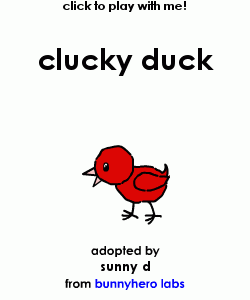So. I thought it was time for a new outlook on this - one that I would be motivated to update now and then.
So I'm making this into a step-by-chapter create-a-book. Now, I know that there is no exact formula for writing (Ally Carter's words, actually, but I'm taking them. Along with a lot of her tips. There should be a link to her For Writers at the bottom of every post. And, depending on what topic I'm discussing, other authors as well), but I'm going to try and take you through the plot process.
Questions? Let's start with the one that might come to MY mind if I was reading this.
What gives you any right to be doing this? I mean, why should you have any reason to be doing this? Do you have knowledge of the topic?
So I know that was more than one. Oh well. On to the answers.
I have as much right to be doing this as you have to be reading it. If, y'know, anyone is. I'm doing this because I've seen people that have writing skills but don't know how to use them. And yes, I do have knowledge on the topic - experience and research of published authors.
Well, anyway.
Let's start at the beginning. Or near it, anyway.
Prefaces/Prologues
The fact is, we can't start here. Prefaces and prologues are something you do once the story is completely written. You can write one, of course, as the stem, or roots of the plant that's your book, but that's more of an idea. To get the authors' (sort of) description of preface and prologue, look below.
Preface: a sort of peek inside the book that gives nothing away.
Prologue: the backstory. The beginning. Where it all started. This is the more apt option to start something with.
Now, this is a short post, because most prefaces and prologues are short. So I'll say some basics that are expected from a writer who wants to be published:
-You've some idea of grammar and sentence structure. Especially if you write in third person, because you're not writing the way someone would think (which, for the record, is not in perfect little sentences and stuff).
-You know what I mean when I say first, second, and third person.
-You're a decent speller.
-You've got passion for what you're writing about, or curiousity, or some strong emotion that fuels you to write more. And knowledge. You have to have some knowledge about what you're writing about.
-Your vocabulary is big - of course, that depends on the age group you're aiming for. If you want little kids to read your book, then you probably should stick to simple words like "cookie", "she", and "dog". Think Clifford the Big Red Dog or The Paper Bag Princess. Juvenile I'm not too experienced in. Flip through some Junie B. Jones. Young Adult is kind of tricky. You've got to have your vocabulary large enough for the average fourteen or fifteen year old, but they can't be used in obvious ways. Think Uglies or Twilight. Adult you need a nice vocabulary used in everyday situations.
-You aren't inexperienced. You've done a paper for English before, or written something just for fun.
Well, I think this has been long enough, and I congratulate you if you made it to the bottom of this page. Happy writing, and the best to you.
Look at this! It's some -what? - INFORMATION? No way, dude. Ally Carter's For Writers
Sunday, December 7, 2008
Prefaces and Prologues and Basics - Oh My!
Posted by Sunny D at 6:14 PM
Subscribe to:
Post Comments (Atom)


0 comments:
Post a Comment